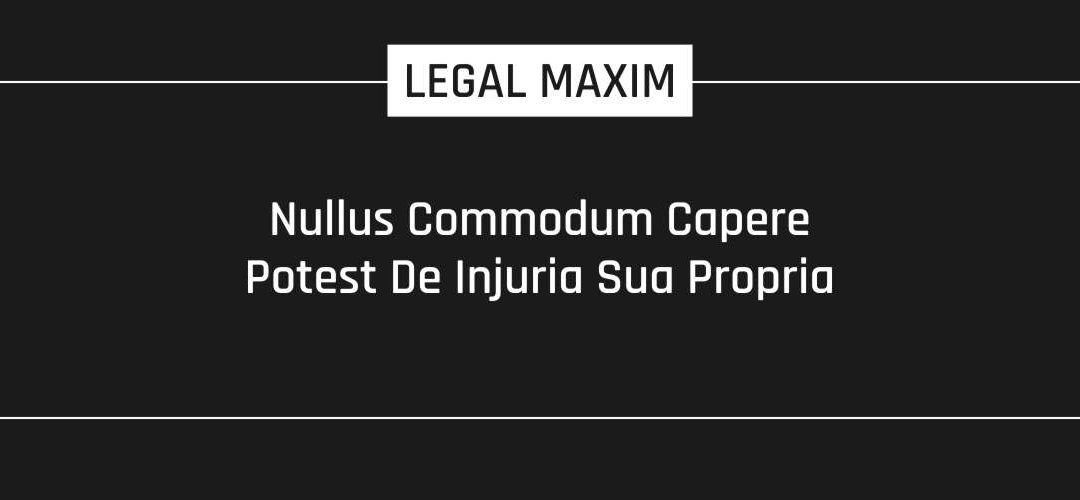Literal Meaning
No one can derive an advantage from his own wrong.
Origin
Latin
Explanation
The above maxim is derived from the general principle of good faith. It means that one party may not avail itself of the fact that the other party has not fulfilled a contractual obligation or has not had recourse to some means of redress, if the former party has, by some illegal act prevented the latter from fulfilling the obligation in question or having recourse to that redress. The maxim may be applied generally to the case of contracts. If the obligee of a bond has prevented the obligor from fulfilling the condition of the bond, he shall not take advantage of the non-performance of the condition, since that would be enabling him to benefit by his own wrong.
Illustration
A makes a contract with B, to build a house within a certain time, under a penalty. B finding materials; however, he delays in providing the materials and further prevents the due completion of the house. In this case, B shall not be allowed to succeed in an action for the penalty.
Case Laws
While referring to the above maxim in Purna Chandra Behera Vs. Dibakar Behera and 4 ors., the Orissa High Court held that “If the Petitioners have committed a wrong in occupying the public land, they cannot be permitted to take the benefit of their own wrong.”
In Indore Development Authority Vs. Shailendra (Dead) Through Its Lrs. And Ors., the Supreme Court held that “Where a creditor refuses a tender sufficient in amount, and duly made, he cannot afterward, for purposes of oppression or extortion, avail himself of such refusal; for, although the debtor still remains liable to pay whenever required so to do, yet the tender operates in the bar of any claim for damages and interest for not paying or for detaining the debt, and also of the costs of an action brought to recover the demand.”
In Ashok Kapil vs. Sana Ullah, the Supreme Court observed that the maxim Nullus commodum capere potest de injuria sua propria (No man can take advantage of his own wrong) is one of the salient tenets of equity and that in the normal course a party cannot secure the assistance of a Court of law for enjoying the fruit of his own wrong.
